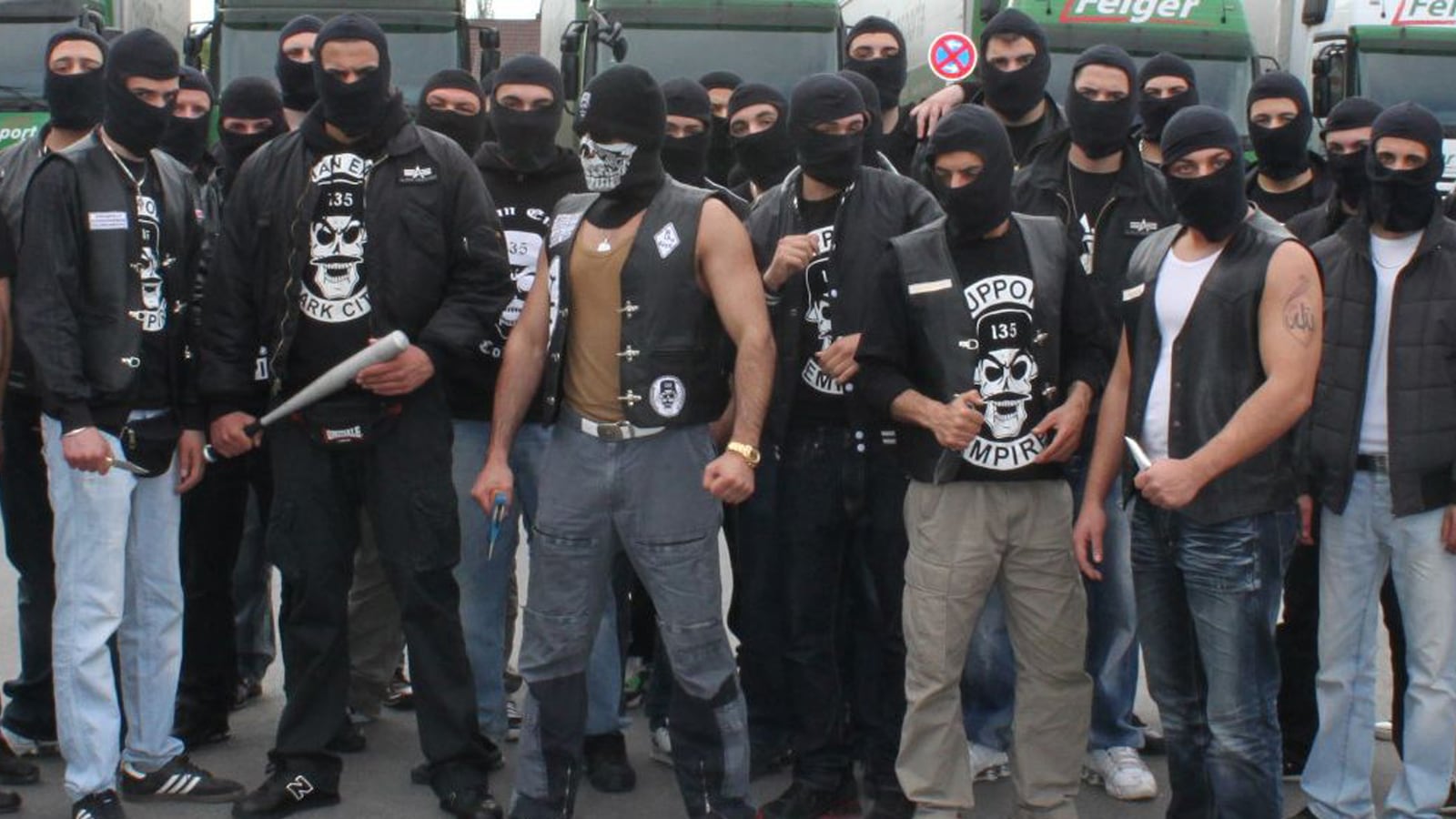AMSTERDAM — At the height of fighting—and the publicity about the fighting—around the Kurdish town of Kobani in northern Syria two months ago, word spread that Dutch and German biker gangs were rushing to the rescue. Guys with a few guns and a lot of tattoos gave interviews and not much information about themselves. They would fight against the so-called Islamic State (or ISIS, or ISIL, or Da’esh, depending on which acronym you use), and they would drive its militants back out of Kurdish territory.
Well, Kobani is still under siege, and some of the bikers may still be hanging around the battlefield, but the Kurds have a message for them: “Don’t come!”
And Dutch prosecutors, who were kind of vague about the legal implications of Dutch citizens taking up arms against terrorists (ISIS) to, um, defend members of another group labeled terrorist (the Kurdistan Workers’ Party or PKK), have finally, in the last few days, decided what they want to tell the bikers: “Don’t Go!”
And the German-Kurdish bikers trying to raise €1 million on a crowd-funding site with the tag FCKISIS have received a resounding FCKU from the public, which has left them, as of this writing, €999,636 short of their goal.
The story seemed a natural. So many lunatics from Europe, including from The Netherlands, have joined the head-choppers of ISIS, and here was a group of badasses on choppers out to kill those bastards. It was promoted on what might be called not-quite-mainstream or, indeed, axe-to-grind media. It cropped up on a Kurdish channel and on a local German channel. Then RT, Russian Television, fell in love with it. So did America’s right-wing Breitbart site. And the British tabloids. And a New York one. And the story just keeps rolling.
In one widely distributed video clip from October a biker named “Ron,” cradling an automatic rifle in his arms among a group of people dressed more or less in Kurdish fashion, presents himself as a member of the Dutch biker gang No Surrender. He claims he’s a “businessman with a military background who has been to several areas under similar circumstances,” whatever that means. Why is he fighting now? “The Kurds have been oppressed for a very long time" he says, "and the way the Yazidis are being murdered, you can’t just stay on your couch at home and do nothing.”
But No Surrender is not the most savory of biker clubs. About ten days before it started gaining fame for supposedly shooting at ISIS in Syria, members of a regional branch were involved in a shooting incident in The Netherlands. At least five guys took part, some of them in No Surrender leather, and Dutch police made public the footage from a security camera that caught the entire episode. It looks like the shoot-out at the OK Corral in a leafy Eindhoven suburb—but nobody seems to be a very good shot.
Is this really the kind of help that people in Syria and Iraq are waiting for?
“We are not proponents of Dutch citizens getting involved in the struggle,” says Bahoz Derik of the Dutch Kurdish FedKom network. “There are thousands of people ready to join the fighting over there but we are short on logistical support and weaponry.” The organization has turned away “around 40 to 50 ex-military men” who called Fedkom for information on how they could join the war. “We can’t help them,” says Derik. “They mainly ask us for a contacts on the ground, but we don’t have them.”
It is doubtful anyone in the Middle East is eagerly awaiting the arrival of yet another throng of armed foreigners coming to add to the confusion. Not to mention what happens when this medley of men comes back home.
But there was some ambiguity about the position of the Dutch Public Prosecutor on the subject, with several media outlets reporting that people joining the fight against ISIS would not be prosecuted in The Netherlands, as opposed to those who joined ISIS and who would be prosecuted.
Contrary to what a spokesperson quoted in the New York Post suggested, the Dutch prosecutor’s office now says in an official statement that “active participation in the armed struggle against IS in Syria and Iraq” is indeed punishable. And it warns that “certain actions in the armed struggle can be war crimes, but also other crimes, like murder, manslaughter, deprivation of freedom or abuse.” The prosecutor specifically noted that members of No Surrender “can be prosecuted if they commit crimes.”
With the harsh Middle Eastern winter approaching fast, what people in Syria and Iraq need most, in fact, is humanitarian support. “The situation is very serious,” says Derik. “We are looking for supplies and tents that can keep the cold out. It is heavy weather already, but things are about to get much worse.”
There are quite enough sons of anarchy in Syria and Iraq already.







